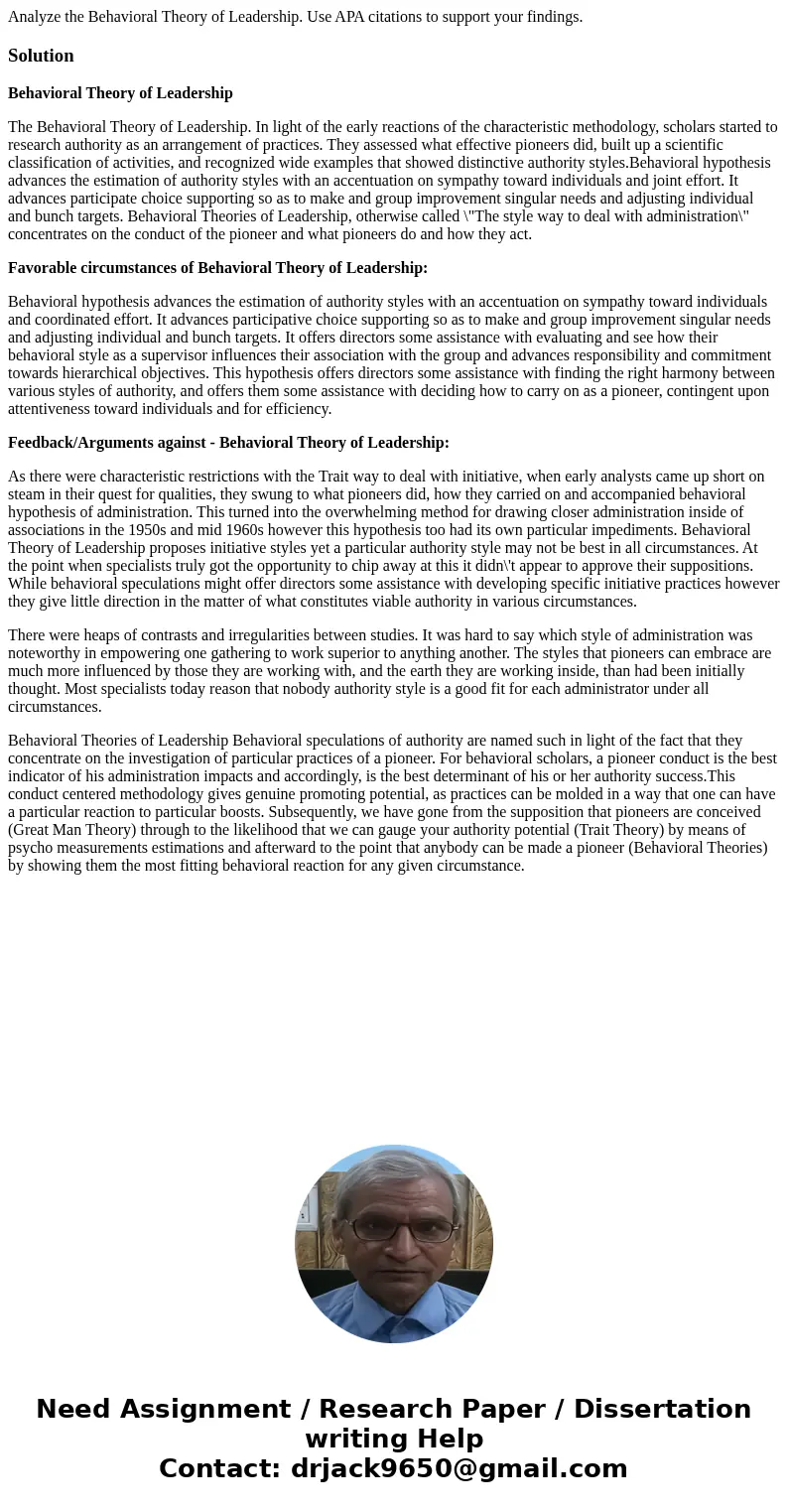Analyze the Behavioral Theory of Leadership Use APA citation
Analyze the Behavioral Theory of Leadership. Use APA citations to support your findings.
Solution
Behavioral Theory of Leadership
The Behavioral Theory of Leadership. In light of the early reactions of the characteristic methodology, scholars started to research authority as an arrangement of practices. They assessed what effective pioneers did, built up a scientific classification of activities, and recognized wide examples that showed distinctive authority styles.Behavioral hypothesis advances the estimation of authority styles with an accentuation on sympathy toward individuals and joint effort. It advances participate choice supporting so as to make and group improvement singular needs and adjusting individual and bunch targets. Behavioral Theories of Leadership, otherwise called \"The style way to deal with administration\" concentrates on the conduct of the pioneer and what pioneers do and how they act.
Favorable circumstances of Behavioral Theory of Leadership:
Behavioral hypothesis advances the estimation of authority styles with an accentuation on sympathy toward individuals and coordinated effort. It advances participative choice supporting so as to make and group improvement singular needs and adjusting individual and bunch targets. It offers directors some assistance with evaluating and see how their behavioral style as a supervisor influences their association with the group and advances responsibility and commitment towards hierarchical objectives. This hypothesis offers directors some assistance with finding the right harmony between various styles of authority, and offers them some assistance with deciding how to carry on as a pioneer, contingent upon attentiveness toward individuals and for efficiency.
Feedback/Arguments against - Behavioral Theory of Leadership:
As there were characteristic restrictions with the Trait way to deal with initiative, when early analysts came up short on steam in their quest for qualities, they swung to what pioneers did, how they carried on and accompanied behavioral hypothesis of administration. This turned into the overwhelming method for drawing closer administration inside of associations in the 1950s and mid 1960s however this hypothesis too had its own particular impediments. Behavioral Theory of Leadership proposes initiative styles yet a particular authority style may not be best in all circumstances. At the point when specialists truly got the opportunity to chip away at this it didn\'t appear to approve their suppositions. While behavioral speculations might offer directors some assistance with developing specific initiative practices however they give little direction in the matter of what constitutes viable authority in various circumstances.
There were heaps of contrasts and irregularities between studies. It was hard to say which style of administration was noteworthy in empowering one gathering to work superior to anything another. The styles that pioneers can embrace are much more influenced by those they are working with, and the earth they are working inside, than had been initially thought. Most specialists today reason that nobody authority style is a good fit for each administrator under all circumstances.
Behavioral Theories of Leadership Behavioral speculations of authority are named such in light of the fact that they concentrate on the investigation of particular practices of a pioneer. For behavioral scholars, a pioneer conduct is the best indicator of his administration impacts and accordingly, is the best determinant of his or her authority success.This conduct centered methodology gives genuine promoting potential, as practices can be molded in a way that one can have a particular reaction to particular boosts. Subsequently, we have gone from the supposition that pioneers are conceived (Great Man Theory) through to the likelihood that we can gauge your authority potential (Trait Theory) by means of psycho measurements estimations and afterward to the point that anybody can be made a pioneer (Behavioral Theories) by showing them the most fitting behavioral reaction for any given circumstance.

 Homework Sourse
Homework Sourse